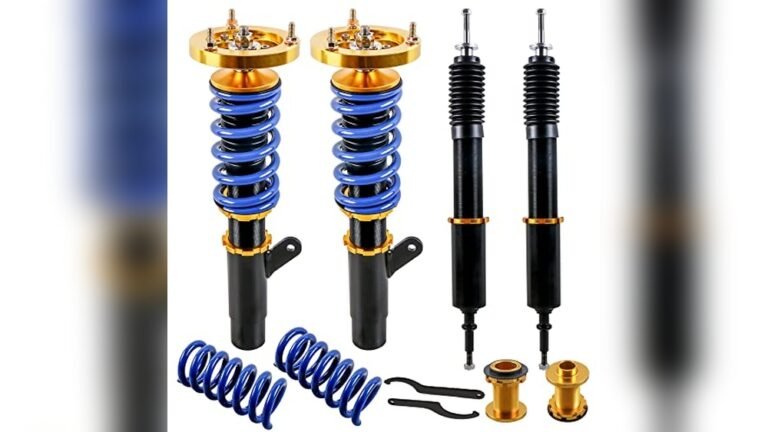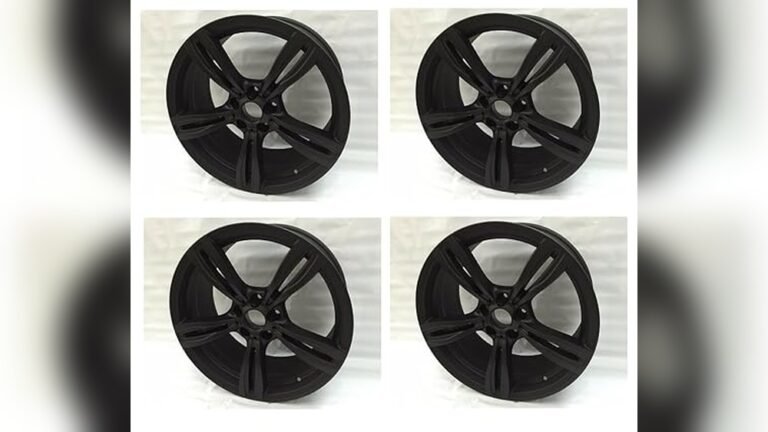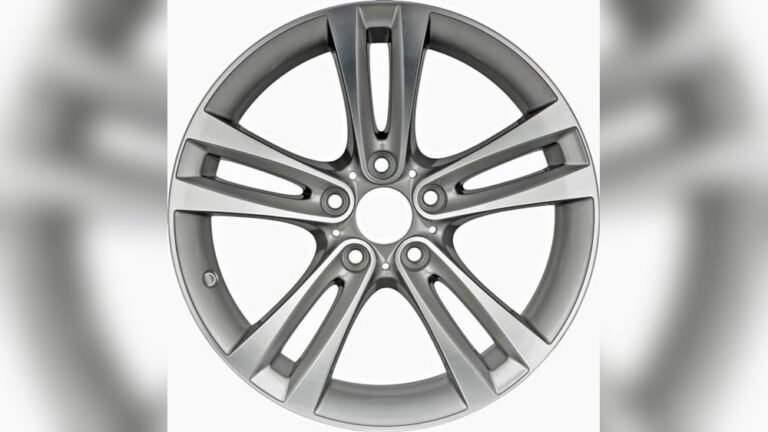If your BMW shakes when accelerating, it may be due to a problem with the engine, tires, or suspension system. This issue should be addressed promptly to avoid further damage and ensure your safety on the road.
A shaking sensation in your BMW when you step on the gas pedal can be a cause for concern. The shaking or vibrating could be a sign of various underlying issues that need to be diagnosed and resolved. These issues may include problems with the engine, tires, or suspension system.
Ignoring the shaking can worsen the situation and potentially lead to more significant damage. We will explore the possible causes of a BMW shaking when accelerating and provide some steps on how to diagnose and fix the problem.
Identifying The Symptoms
When your BMW shakes while accelerating, it is important to identify the symptoms to determine the underlying cause. One common symptom is feeling a noticeable shaking or vibration in the steering wheel, floorboard, or seat. This shaking experience can vary in intensity and may become more pronounced as you accelerate. Be on the lookout for any additional signs that may accompany the shaking, such as a rumbling noise, loss of power, or difficulty in maintaining speed.
The variation of symptoms with speed is also an important factor to consider. For instance, you may notice the shaking occurs at lower speeds and smooths out as you increase your velocity. Alternatively, the shaking may become more pronounced as you accelerate. Understanding these variations can help in diagnosing the specific issue your BMW may be facing.
Possible Causes Explained
Engine-related issues:
If your BMW shakes when accelerating, it could be due to engine-related problems. Common issues include misfiring cylinders, worn spark plugs, or a faulty fuel injector. These problems can cause uneven power delivery, leading to vibrations and shaking.
Drivetrain complications:
Another potential cause of shaking during acceleration is drivetrain complications. Faulty or worn-out transmission components, such as a damaged driveshaft or worn-out universal joints, can result in vibration and shaking, especially at higher speeds.
Tire and wheel imbalances:
Imbalanced tires or wheels can cause your BMW to shake. Improperly balanced wheels can result in uneven weight distribution, leading to vibrations when you accelerate. Additionally, worn or damaged tires can also contribute to shaking.
Suspension and steering components:
Damaged or worn-out suspension and steering components can cause your BMW to shake during acceleration. Faulty shocks, struts, or control arms may result in vibrations and instability when accelerating or driving over uneven surfaces.
Brake system problems:
Lastly, issues with the brake system can lead to vibrations during acceleration. Warped brake rotors or worn brake pads can cause pulsation and shaking, particularly when applying the brakes while accelerating.
Professional Diagnosis Vs. Diy
When experiencing a BMW shakes when accelerating issue, you may wonder whether to seek professional diagnosis or attempt a DIY troubleshooting. While a professional mechanic’s insight brings several benefits, considering DIY troubleshooting can be helpful in certain situations.
Professional diagnosis offers expertise, experience, and access to specialized equipment. Mechanics can accurately identify the underlying cause of the shaking and provide an effective solution. This avoids wasting time and money on unnecessary repairs or replacements.
However, there are instances when considering DIY troubleshooting can be beneficial. It allows you to gain knowledge about your vehicle and potentially resolve minor issues on your own. This can save you time and money, especially for simple problems that don’t require professional intervention.
Remember that even for DIY troubleshooting, it’s important to have a basic understanding of automotive systems and follow proper safety precautions. If the issue persists or seems complex, consulting a professional mechanic is always a wise decision.
Inspecting For Engine Problems
If your BMW is shaking when accelerating, it could be indicative of underlying engine problems. Identifying and resolving these issues promptly is crucial to maintaining the performance and longevity of your vehicle.
| Checking engine mounts | Inspect the engine mounts for signs of wear or damage. Faulty engine mounts can cause excessive vibrations during acceleration. Replace any worn or damaged mounts to restore stability. |
| Spark plugs and ignition coils | Check the condition of the spark plugs and ignition coils. Worn or faulty spark plugs can lead to misfires and engine vibrations. Replace them if necessary to improve performance. |
| Fuel system checks | Examine the fuel system components, including the fuel filter, injectors, and pump. A clogged or malfunctioning fuel system can cause engine shaking. Clean or replace the necessary parts to ensure proper fuel delivery. |
By addressing these potential engine problems, you can resolve the shaking issue in your BMW and enjoy a smoother driving experience. Regular maintenance and timely repairs are key to keeping your vehicle in optimal condition.
Drivetrain Evaluation
When it comes to the BMW shaking while accelerating, it is crucial to conduct a thorough drivetrain evaluation. This evaluation should include examining the drive shaft and CV joints, as well as assessing the health of the transmission. The drive shaft connects the transmission to the rear axle and can experience issues such as worn universal joints or an imbalanced propeller shaft. The CV joints, located at the ends of the drive shaft, are responsible for smooth power transfer to the wheels and can become damaged or worn over time. Additionally, a comprehensive transmission assessment is necessary to identify any potential problems like slipping gears or worn-out components. By carefully evaluating these drivetrain components, any causes of the BMW shaking can be accurately identified and effectively addressed.
Correcting Wheel Imbalances
Wheel imbalances can cause your BMW to shake when accelerating. Balancing your tires professionally is an essential step in correcting these issues. Regular tire rotation is also important as it helps distribute the load evenly across all four tires, preventing uneven wear and maintaining a smooth ride. Marked by the bold, professional tire balancing involves adjusting the weights on the wheel to ensure they are evenly distributed, minimizing vibrations and improving overall performance. This process is usually done using specialized equipment that accurately measures the imbalance and determines the corrective weights needed. By addressing wheel imbalances and regularly rotating your tires, you can improve the driving experience of your BMW and prevent further damage or safety issues. Ensure you consult a professional technician or tire specialist to perform these tasks and ensure optimal performance and longevity of your BMW.
Suspension And Steering Repairs
Is your BMW shaking when you accelerate? This can be a sign of suspension and steering issues. If you’re experiencing this problem, it may be necessary to replace worn out components in your suspension system. Worn out parts can cause instability and vibrations, affecting your driving experience. Upgrading suspension parts can not only improve the handling and stability of your BMW but also provide better performance on the road. It’s important to address these issues promptly to avoid further damage to your vehicle and ensure your safety. If you notice your BMW shaking when accelerating, don’t hesitate to have a professional inspect and repair your suspension and steering components.
Regular Maintenance Tips
Regular maintenance is essential to keep your BMW running smoothly and to address any issues that may arise. One important aspect of maintenance is scheduling periodic check-ups with a certified BMW mechanic. These check-ups allow the mechanic to inspect various components of your vehicle and address any issues before they become major problems. Additionally, using genuine parts and fluids is crucial for the proper functioning of your BMW. Genuine parts are specifically designed to fit your BMW and provide optimal performance, while genuine fluids ensure that all systems are properly lubricated. Investing in these high-quality parts and fluids can help prevent potential issues and ensure a smoother driving experience. By following these regular maintenance tips, you can keep your BMW in top shape and address any shaking or acceleration issues that may arise.

Credit: www.e90post.com
Frequently Asked Questions On Bmw Shakes When Accelerating
Why Is My Bmw Shaking When Accelerating?
There are several possible reasons for your BMW to shake when accelerating. It could be due to worn-out spark plugs or ignition coils, a misfiring engine, a damaged fuel injector, or even a problem with the transmission. It is recommended to have a professional mechanic diagnose and fix the issue to ensure optimal performance and safety.
How Can I Fix The Shaking Problem In My Bmw?
The first step in fixing the shaking problem in your BMW is to identify the underlying cause. Once the cause is determined, you can take appropriate action. This may involve replacing faulty spark plugs or ignition coils, cleaning or replacing fuel injectors, or repairing any transmission issues.
It is best to consult with a certified mechanic for an accurate diagnosis and repair.
Is It Safe To Drive A Bmw That Shakes During Acceleration?
While it may be tempting to continue driving your BMW despite the shaking issue, it is not recommended. The shaking could be a symptom of a more significant problem that could lead to further damage or safety hazards. It is best to have the issue evaluated by a professional mechanic to ensure your safety and prevent costly repairs down the line.
Conclusion
To conclude, experiencing a shaking sensation in your BMW while accelerating can be unsettling. However, it is important to address this issue promptly to ensure your safety and the longevity of your vehicle. By understanding the potential causes, such as worn-out engine mounts, misaligned wheels, or transmission issues, you can seek professional help and take the necessary steps to rectify the problem.
Remember, regular maintenance and timely repairs are crucial in maintaining the optimal performance of your BMW.







